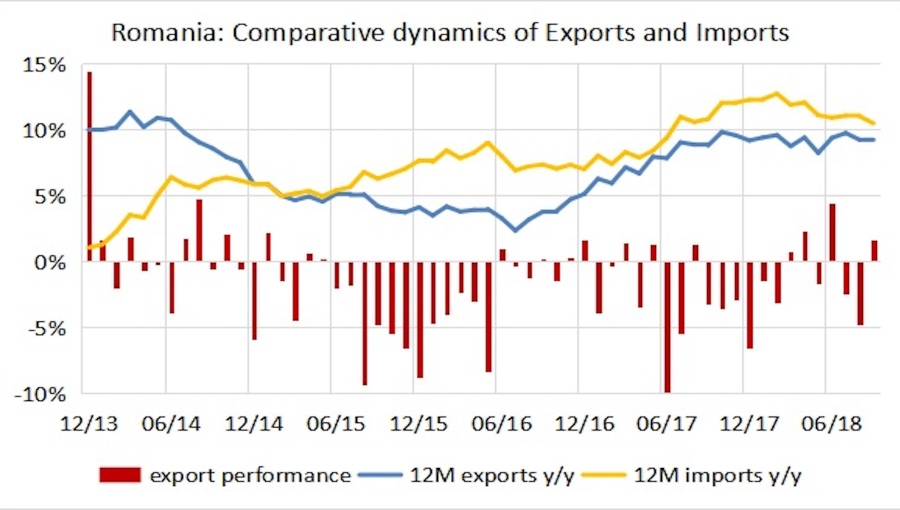Trade deficit widens at a slower rate

Trade deficit widened slightly in the first quarter of the fiscal year as imports of major goods, including capital machinery, slowed down ahead of the national election next month.
The country's trade gap increased only 5.53 percent year-on-year to $3.85 billion between the months of July and September, according to data from the central bank.
Handsome growth of export earnings also helped to hold back the rising trade deficit -- a worrying trend witnessed by the country throughout last fiscal year.
The country's trade deficit hit $18.25 billion in fiscal 2017-18, the highest in its history.
Export earnings stood at $9.74 billion in the first quarter of fiscal 2018-19, up 14 percent from a year earlier. At the same time, imports rose 11.48 percent to $13.60 billion.
Many businesses have recently adopted a 'wait and see' approach to set up new industrial units or expand their existing ones in light of the national election in December, said AB Mirza Azizul Islam, a former finance adviser to a caretaker government.
They are now closely observing the political developments and law and order before committing to any fresh investment decision, he said.
“The ongoing uncertainty has left the businesses shaky, which ultimately brought down the import of capital machinery,” Islam said. The import of capital machinery came down to $1.24 billion in the first three months of fiscal 2018-19 in contrast to $1.28 billion a year earlier, according to data from the Bangladesh Bank.
The lower import of capital machinery indicates that the country's investment scenario is going through a cooling-off period.
“This might not bring any good for the economy,” Islam said, adding that there is also uncertainty about the continuation of the current export momentum.
The lower trade gap was obviously good but the slowdown in import is a matter of concern for the economy, said Syed Mahbubur Rahman, chairman of the Association of Bankers, Bangladesh, a platform of private banks' managing directors.
Before the national polls, investment usually nosedives because of a lack of confidence among the business community anticipating deterioration of the law and order situation.
“The situation is also prevailing this time. But there is a hope after exports and remittances increased sharply in the first quarter,” he said.
Rahman, also the managing director of Dhaka Bank, predicts imports will rebound in the final quarter of the fiscal year as the election hangover may end by March.
The country's current account deficit, however, decreased 25.56 percent year-on-year to $1.35 billion between July and September.
But Islam said the current account is still maintaining a large deficit in terms of the country's foreign exchange volume.
“We have to reduce the gap. Otherwise, it will put more pressure on the foreign exchange market,” he added.
